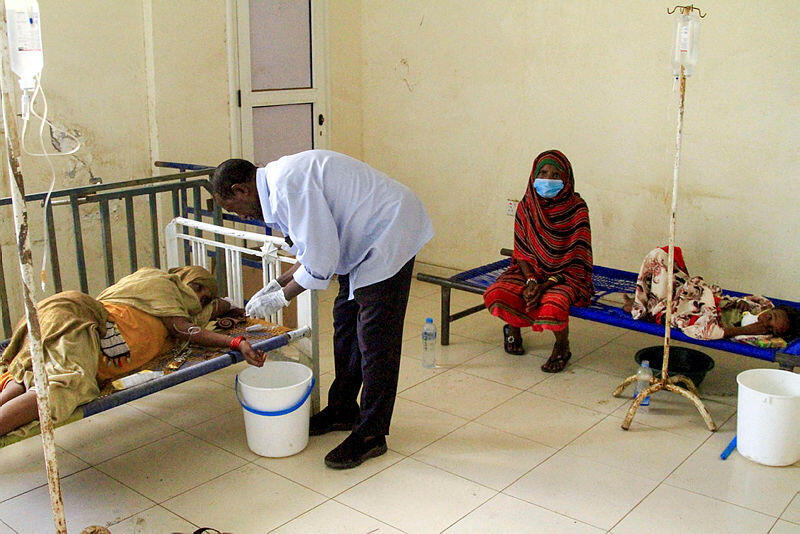Getting your Trinity Audio player ready...
A cholera outbreak in Sudan has claimed 78 lives this year, raising global concern. By July 28, over 2,400 cases had been reported. According to the World Health Organization, the outbreak began in the city of Kassala, located on the banks of the Gash River in eastern Sudan and has since spread to other areas. Professor Eyal Leshem, an infectious disease specialist from Sheba Medical Center, told Ynet that "the risk to Israel is extremely low. Even if a cholera patient were to arrive in Israel, the likelihood of significant disease spread is minimal."
Cholera is a bacterial intestinal infection caused by the Vibrio cholerae bacterium (Vibrio Cholerae O-group 1 or O-group 139), which releases a toxin in the intestines leading to the disease characterized by severe diarrhea. The illness primarily emerges in countries lacking adequate sewage and water systems. According to the Clalit HMO website, the disease is usually mild, presenting with light diarrhea that resolves on its own, but one in 20 patients may develop severe, life-threatening symptoms, including uncontrollable watery diarrhea, vomiting and leg cramps.
The World Health Organization notes that "cholera is a highly aggressive disease transmitted through the consumption of contaminated food or water. It can cause severe acute watery diarrhea and even result in death within hours."
Leshem emphasized that "this outbreak in Sudan is a continuation of several outbreaks in recent years. In 2017, there was a massive outbreak with tens of thousands of cases and over 700 deaths. Now, they are reporting hundreds of diagnosed patients and 22 additional deaths, which is very concerning for the Sudanese."
He further explained that cholera is caused by a bacterium mainly transmitted through drinking contaminated water, but also through consuming contaminated food or contact with an infected individual.
"The bacterium causes very severe diarrhea, quickly leading to dehydration. It's very dangerous for young children. People can, excuse the description, lose liters through diarrhea, leading to dehydration within a day. This necessitates rapid treatment with intravenous fluids, which is very challenging to administer in remote areas of Africa," according to Leshem.
"In countries like Sudan, where there isn't adequate drinking water, and people drink from reservoirs, streams, puddles or lakes without proper sewage systems, the risk of infection is very high among most of the population. In contrast, in a country like Israel with excellent sewage systems and high-quality drinking water, even tap water is of exceptional quality, the risk is extremely low," he added. "Even if a cholera-infected individual were to arrive in Israel, the risk of significant spread among citizens is minimal. I have worked in cholera-stricken countries in Africa and Haiti, and the risk to someone traveling to these countries is very low, as long as they drink bottled water and wash hands with soap and water after treating patients."
Cholera is not uncommon in Sudan. During a previous large outbreak in 2017, at least 700 people died, and about 22,000 were infected in less than two months. Sudan is currently facing heavy floods that, according to the UN Migration Agency, have displaced around 118,000 people. American officials have also warned of mass famine in Sudan. The ongoing war and blocked aid could exacerbate the situation, potentially leading to the most deadly famine in over a decade.
The conflict in Sudan, involving a bloody conflict between the Sudanese Armed Forces and the Rapid Support Forces, has created the world's largest displacement crisis. More than 10.7 million people have been forced to flee their homes since the fighting began, with over two million escaping to neighboring countries. The fighting has been marked by atrocities, including mass rapes and ethnically motivated killings, constituting war crimes and crimes against humanity, according to the UN and international human rights organizations.


